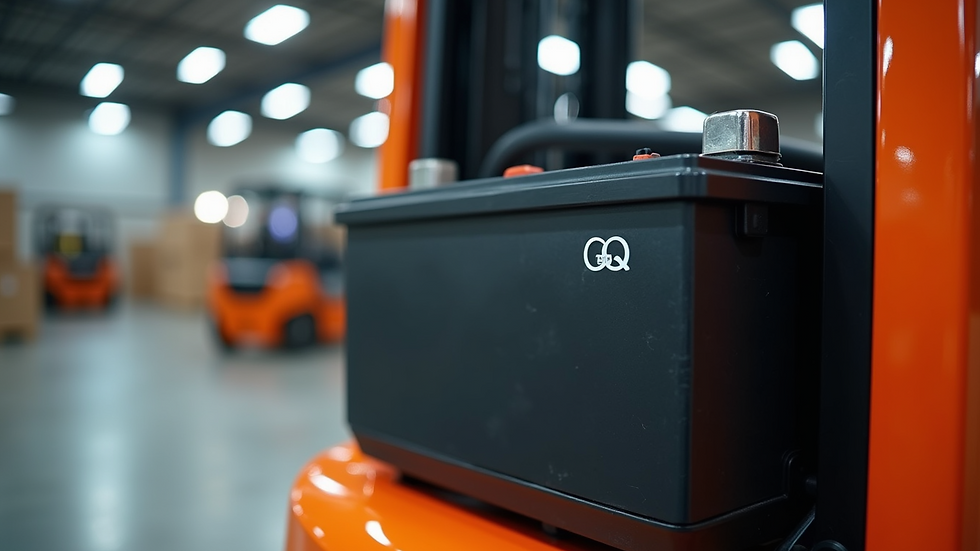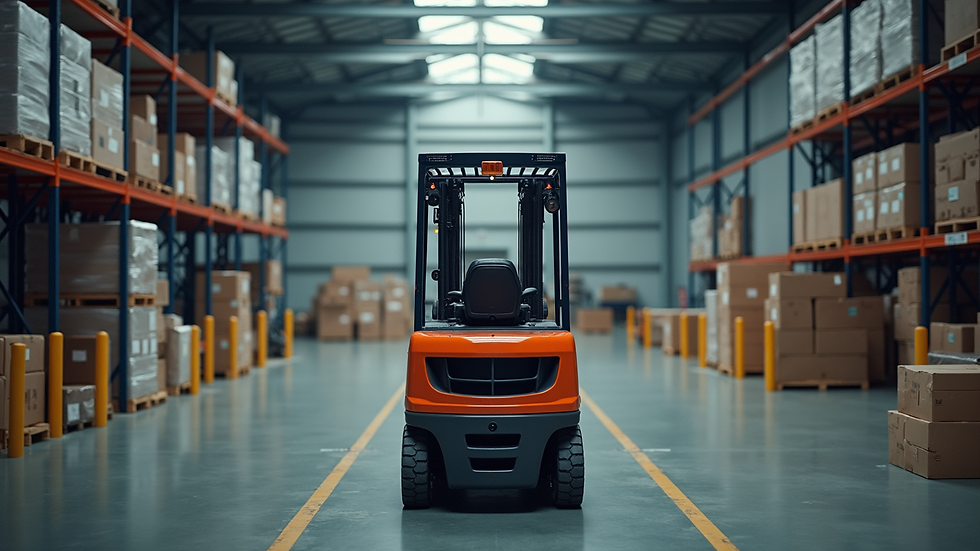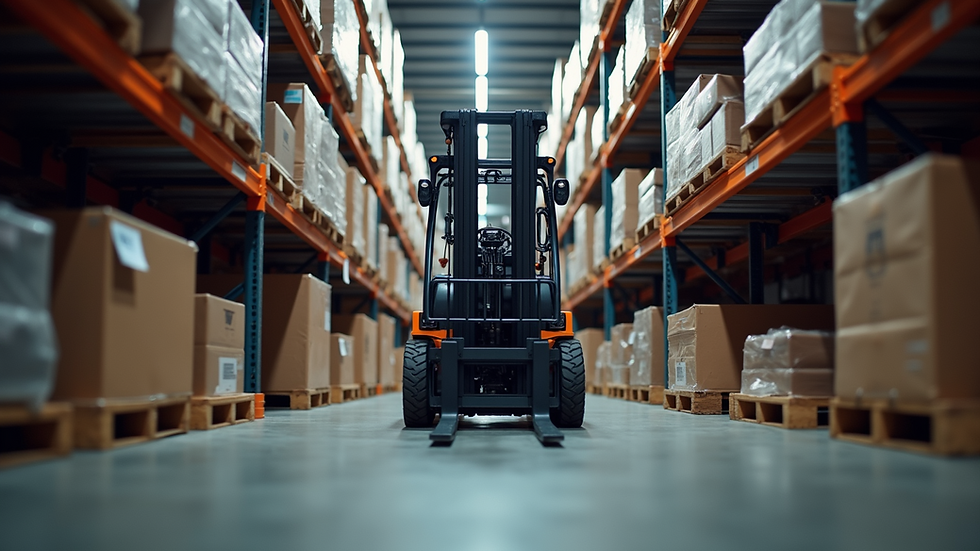The Advantages of Using Electric Forklifts
- Michael Gray

- Aug 6, 2025
- 4 min read
In the world of material handling and warehouse operations, choosing the right forklift can significantly impact productivity, costs, and environmental footprint. Electric forklifts have become increasingly popular as businesses seek efficient and sustainable solutions. This article explores the many advantages of using electric forklifts, providing practical insights and examples to help you understand why they might be the best choice for your operations.
Benefits of an Electric Forklift in Modern Warehousing
Electric forklifts offer several key benefits that make them ideal for modern warehousing environments. One of the most notable advantages is their environmental friendliness. Unlike traditional internal combustion forklifts that run on diesel or propane, electric forklifts produce zero emissions at the point of use. This makes them perfect for indoor use, especially in facilities with strict air quality regulations.
Another significant benefit is lower operating costs. Electric forklifts have fewer moving parts, which means less maintenance is required. They do not need oil changes, fuel filters, or spark plugs, reducing both downtime and maintenance expenses. Additionally, electricity is generally cheaper than fossil fuels, leading to savings on energy costs.
Electric forklifts are also quieter than their combustion counterparts. This noise reduction creates a safer and more comfortable working environment, reducing stress and fatigue for operators. The quiet operation also allows for better communication on the warehouse floor, improving overall efficiency.

Key Features That Make Electric Forklifts Stand Out
Electric forklifts come equipped with features that enhance their usability and efficiency. One such feature is regenerative braking, which recovers energy during braking and feeds it back into the battery. This extends battery life and reduces energy consumption.
Another important feature is the compact design of many electric forklifts. Their smaller size and tighter turning radius make them ideal for navigating narrow aisles and confined spaces. This can increase storage density and improve workflow in busy warehouses.
Battery technology has also advanced significantly. Modern electric forklifts use lithium-ion batteries, which charge faster and last longer than traditional lead-acid batteries. Lithium-ion batteries also require less maintenance and can be opportunity charged during breaks, minimizing downtime.
For businesses looking to invest in electric forklifts, it is worth exploring options available at Best Buy Forklift to find models that fit specific operational needs.

Are electric forklifts worth it?
Many businesses ask whether electric forklifts are worth the investment compared to traditional models. The answer depends on several factors, but in most cases, the advantages outweigh the initial costs.
Cost savings over time are a major consideration. While electric forklifts may have a higher upfront price, the reduced fuel and maintenance costs lead to a lower total cost of ownership. For example, a warehouse that operates multiple shifts can save thousands of dollars annually on fuel alone.
Improved safety and compliance are other reasons to choose electric forklifts. Their zero emissions and quieter operation help meet workplace safety standards and reduce health risks for employees.
Additionally, electric forklifts contribute to a company’s sustainability goals. Many organizations are committed to reducing their carbon footprint, and switching to electric forklifts is a practical step toward greener operations.
To maximize the benefits, businesses should consider factors such as battery charging infrastructure, operator training, and the specific demands of their material handling tasks.

Practical Tips for Integrating Electric Forklifts into Your Fleet
Transitioning to electric forklifts requires careful planning to ensure smooth integration. Here are some actionable recommendations:
Assess your operational needs - Evaluate the types of loads, shift lengths, and working environments to select the right forklift model and battery capacity.
Invest in charging infrastructure - Set up charging stations in convenient locations to minimize downtime and optimize battery life.
Train operators - Provide comprehensive training on electric forklift operation, battery management, and safety protocols.
Schedule regular maintenance - Even though electric forklifts require less maintenance, routine checks on batteries, tires, and electrical components are essential.
Monitor performance - Use telematics and fleet management software to track usage, battery health, and maintenance needs.
By following these steps, businesses can ensure a successful transition and fully leverage the advantages of electric forklifts.
Future Trends in Electric Forklift Technology
The future of electric forklifts looks promising with ongoing innovations aimed at improving efficiency and sustainability. Some trends to watch include:
Advanced battery technologies such as solid-state batteries, which promise even faster charging and longer life.
Automation and robotics integration, enabling electric forklifts to operate autonomously for repetitive tasks.
Enhanced connectivity through IoT devices, allowing real-time monitoring and predictive maintenance.
Lightweight materials to improve energy efficiency and increase payload capacity.
These advancements will continue to make electric forklifts more attractive and practical for a wide range of industries.
Switching to electric forklifts is a smart move for businesses looking to improve efficiency, reduce costs, and support environmental sustainability. With the right planning and investment, electric forklifts can transform warehouse operations and provide long-term value. For more information on selecting the best electric forklift for your needs, visit Best Buy Forklift.




Comments